Anwar’s ‘Reformasi’ reversal? Malaysia’s judicial bulwark faces a familiar siege
Once a victim of Malaysia’s politicised courts, Prime Minister Anwar Ibrahim now stands accused of undermining judicial independence
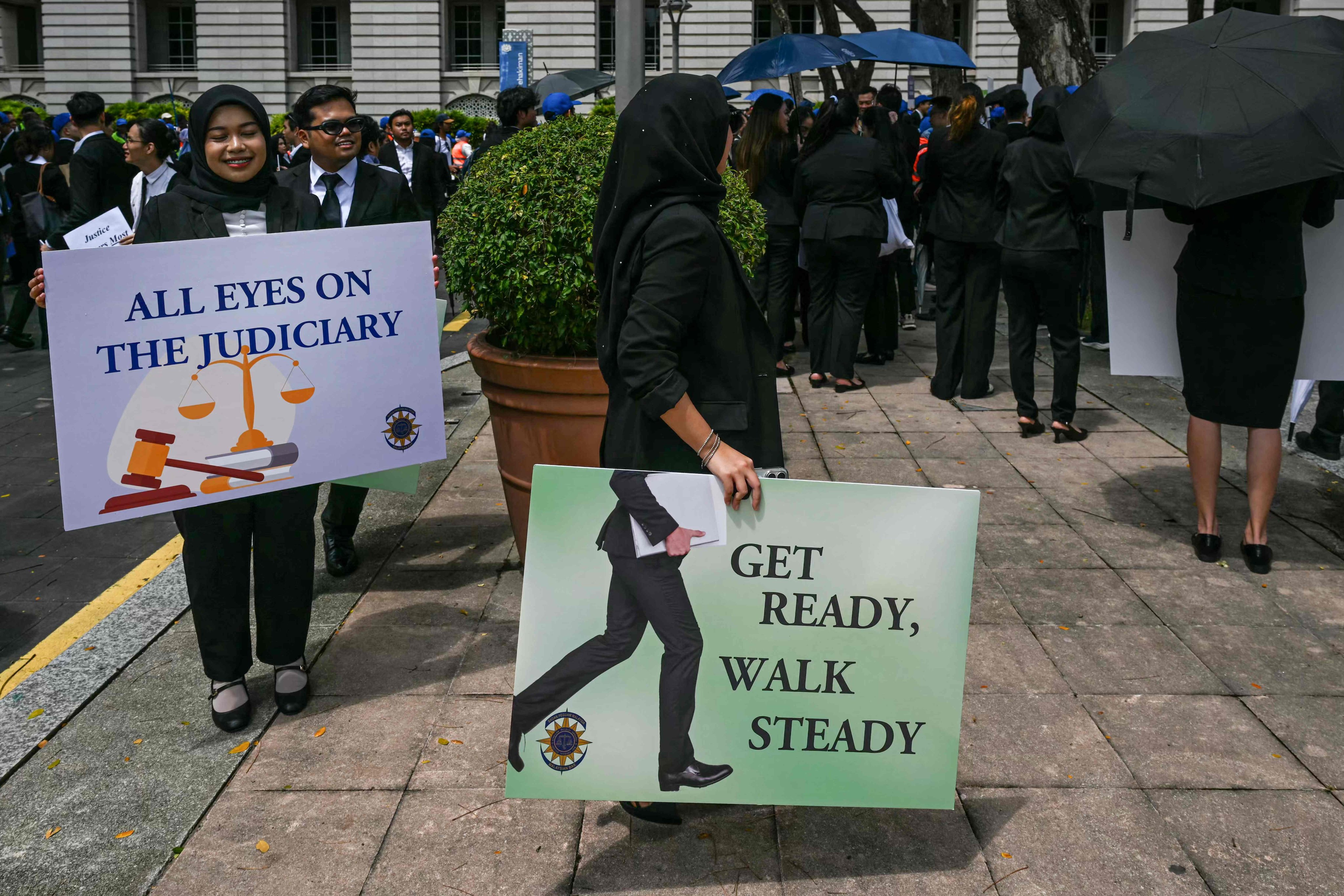
On a humid July afternoon in Putrajaya, Ambiga Sreenevasan donned her black lawyer’s robes, feeling the weight of history bearing down on her.
Four decades after her first revolt against judicial interference, she was once again on the streets – this time, joined by hundreds protesting against Prime Minister Anwar Ibrahim’s alleged meddling in the appointment of Malaysia’s top judges.
What felt like history repeating itself was in fact the country’s legal practitioners taking a stand in defence of Malaysia’s fragile system of legal checks and balances, the 68-year-old veteran lawyer told This Week in Asia.
“We have had to watch [the government] like a hawk and constantly keep tabs, which we never wanted to do,” she said, her frustration sharpened by experience. And Ambiga is far from alone.
Around 1,000 lawyers marched on the prime minister’s office in the administrative capital of Putrajaya on July 14, accusing Anwar of overstepping his mandate. Thousands more lent their support to the peaceful protest’s call for an urgent course correction.
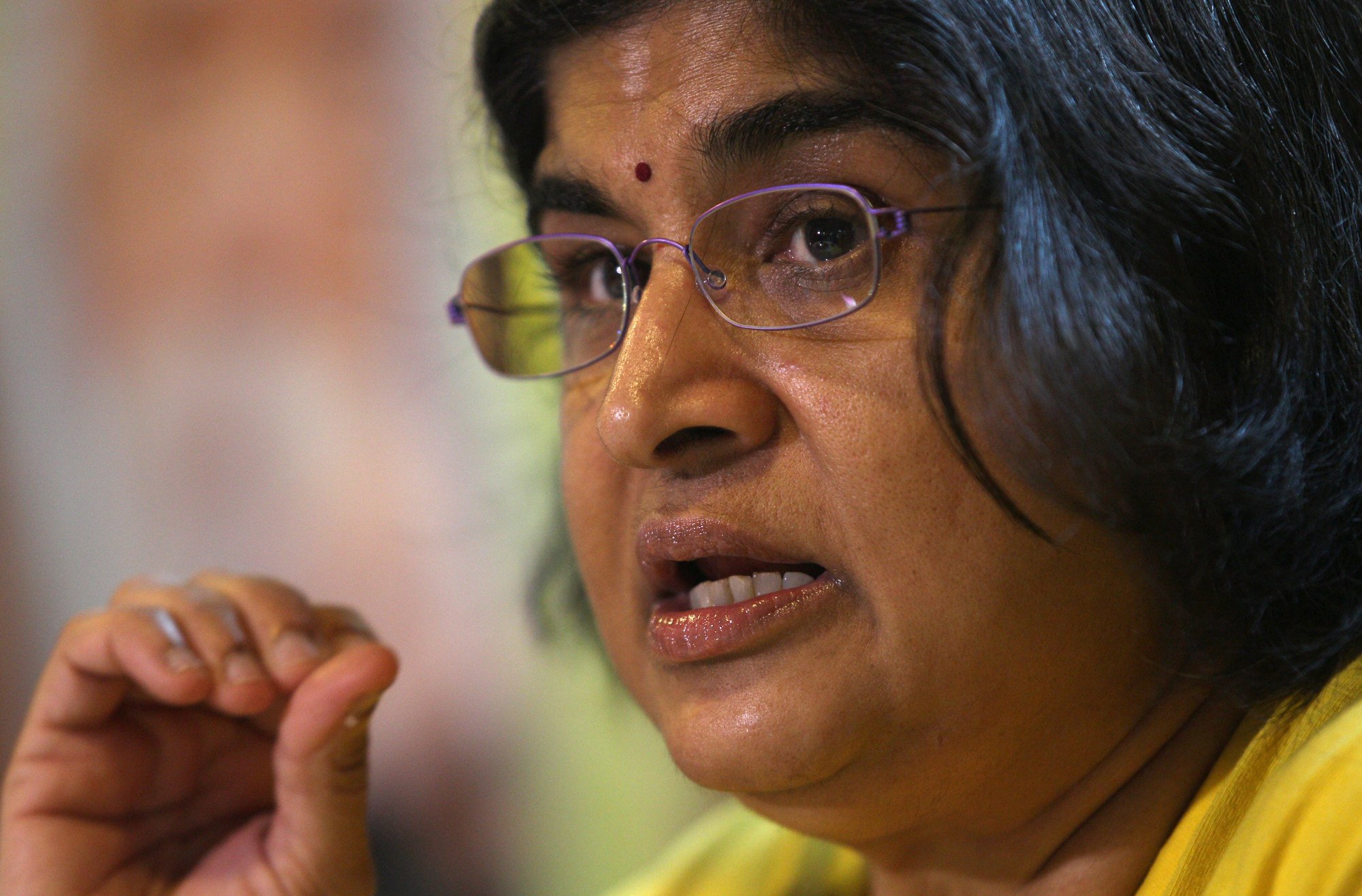
For Ambiga, the parallels with 1988 were inescapable. Then, a judicial crisis erupted after long-serving prime minister Mahathir Mohamad removed a string of the country’s senior judges over contentious rulings. Today, as Anwar’s government stalled over the appointment of a new chief justice, she found herself fighting old battles in a new guise.
The latest crisis reached boiling point after weeks of indecision over who would succeed former chief justice Tengku Maimun Tuan Mat, whose tenure ended on July 1. The king, constitutionally obliged to act on the prime minister’s advice, found no clear nominee. The following day, Abang Iskandar Abang Hashim, president of Malaysia’s Court of Appeal, also retired. Yet neither received the customary six-month extension, despite a dearth of suitable successors.
The resulting vacuum raised fears of a “looming crisis” – in the words of the Malaysian Bar, which represents more than 23,000 of the country’s lawyers – threatening to delay trials, create long backlogs and erode public trust in the judiciary.
“There are between 30 and 35 appointments that have not been made by the government,” Ambiga said, highlighting that the crisis extends beyond just the chief justice and appeal court president. “It is actually undermining the judiciary.”
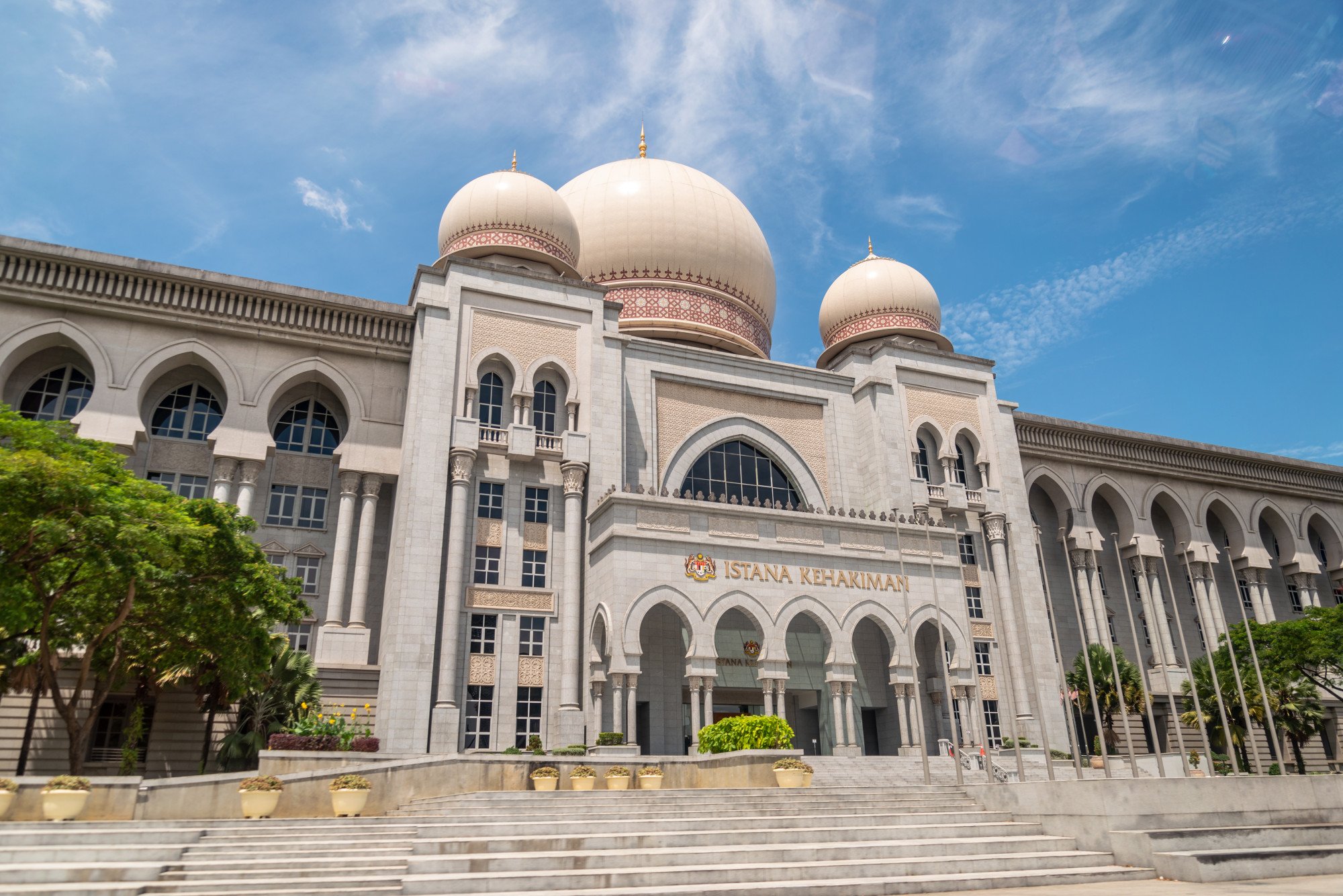
Critics argue that Anwar’s hesitation to appoint a top judge flew in the face of his government’s pledges for reform and transparency. “It is an attack on the independence of the judiciary,” Ambiga said, comparing the recent crisis with the earlier one sparked by Mahathir.
Raising further concerns were leaked documents suggesting that Federal Court Judge Terrirudin Salleh, 57 – previously widely rumoured to be a frontrunner for the next chief justice – had pressured Tengku Maimun to rule in favour of unnamed interests and pushed for the reappointment of judges involved in ongoing trials.
Terrirudin, who served as attorney general until November last year before a swift elevation to the federal bench, has delivered just one judgment since. Critics say this highlights his lack of judicial experience. The Attorney General’s Chambers has dismissed the allegations as “speculation”.
What might have seemed an arcane bureaucratic impasse has kicked up a hornet’s nest of problems for Anwar. Even his daughter, Nurul Izzah, deputy president of his People’s Justice Party, joined the protest on July 14, declaring the necessity “to safeguard judicial independence”.
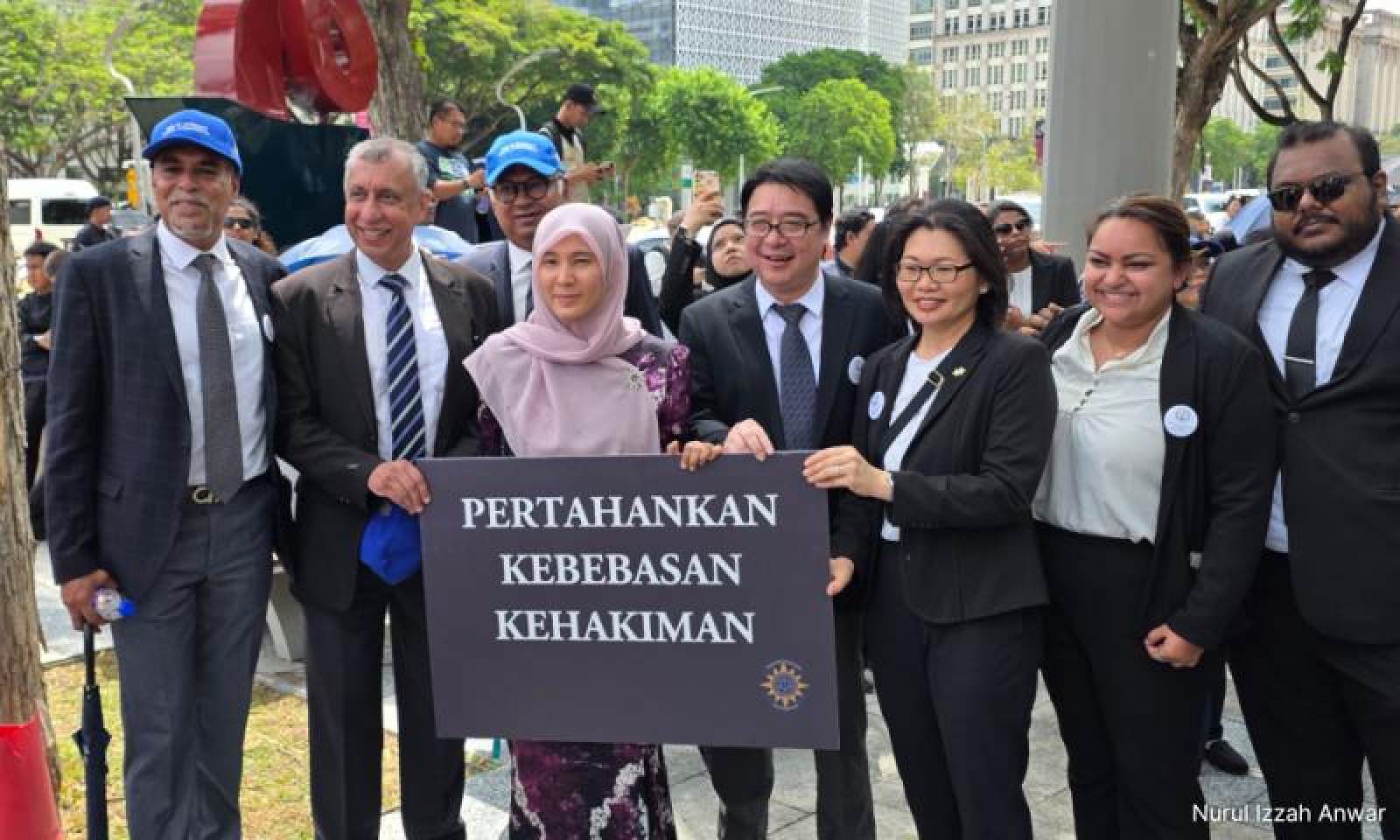
After weeks of uncertainty, Court of Appeal Judge Wan Ahmad Farid Wan Salleh was eventually named as the new chief justice on July 18. Anwar later claimed vindication, saying that the appointment disproved “baseless” claims that he had tried to push forward Terrirudin for the post.
“The complaints and grievances that were hurled at me for weeks, the criticism, the slander, but now it turns out that those claims were completely off the mark,” he said.
Unhandled type: inline-plus-widget {“type”:”inline-plus-widget”}
“I did not remove any judge, I did not transfer any judge at will and I did not interfere with any decision.”
History repeats
The symbolism of the lawyers’ march was unmistakable, however. For many Malaysians, lawyers have long stood as a bulwark against autocratic excess. The 1988 judicial purge still casts a long shadow: then, Mahathir forced out Supreme Court chief Mohamed Salleh Abas, then known as the “lord president”, and other top judges amid a bitter party struggle, amending the constitution to diminish the courts’ authority.
“It was devastating as it was the first instance of executive interference in the judiciary since Malaysia’s independence,” recalled Zaid Malek of the rights group Lawyers for Liberty.
“If law cannot be impartial, fair and just, there is no measure of protection for the Malaysian public or anyone else who resides and does business in or with Malaysia to avoid abuse of power by the government.”
I blame the PM … If this were to happen in Europe, the prime minister would resign along with the law minister and her deputyNaran Singh, criminal lawyer
Public trust in Malaysia’s legal system never fully recovered, observers say.
“It struck a terrible blow, not only to the independence of the Malaysian judiciary … but to national pride itself,” Tunku Abdul Rahman, the country’s first prime minister, wrote in his foreword to Mohamed Salleh’s book, May Day for Justice.
A second crisis erupted in 2007, when a video surfaced allegedly showing a senior lawyer brokering judicial appointments. Outraged, 2,000 lawyers marched, forcing the government to establish the Judicial Appointments Committee to vet and recommend candidates. It was a rare concession to transparency, but not, it seems, a permanent fix.
Anwar, once lionised for suffering at the hands of Malaysia’s politicised courts, now finds himself accused of the very sins he once decried.
“I blame the PM, I blame the law ministers for not being diligent about this, or they deliberately let this thing happen. Deliberately, they knew,” said criminal lawyer Naran Singh.
“This is about the office of the chief justice. If this were to happen in Europe, the prime minister would resign along with the law minister and her deputy.”
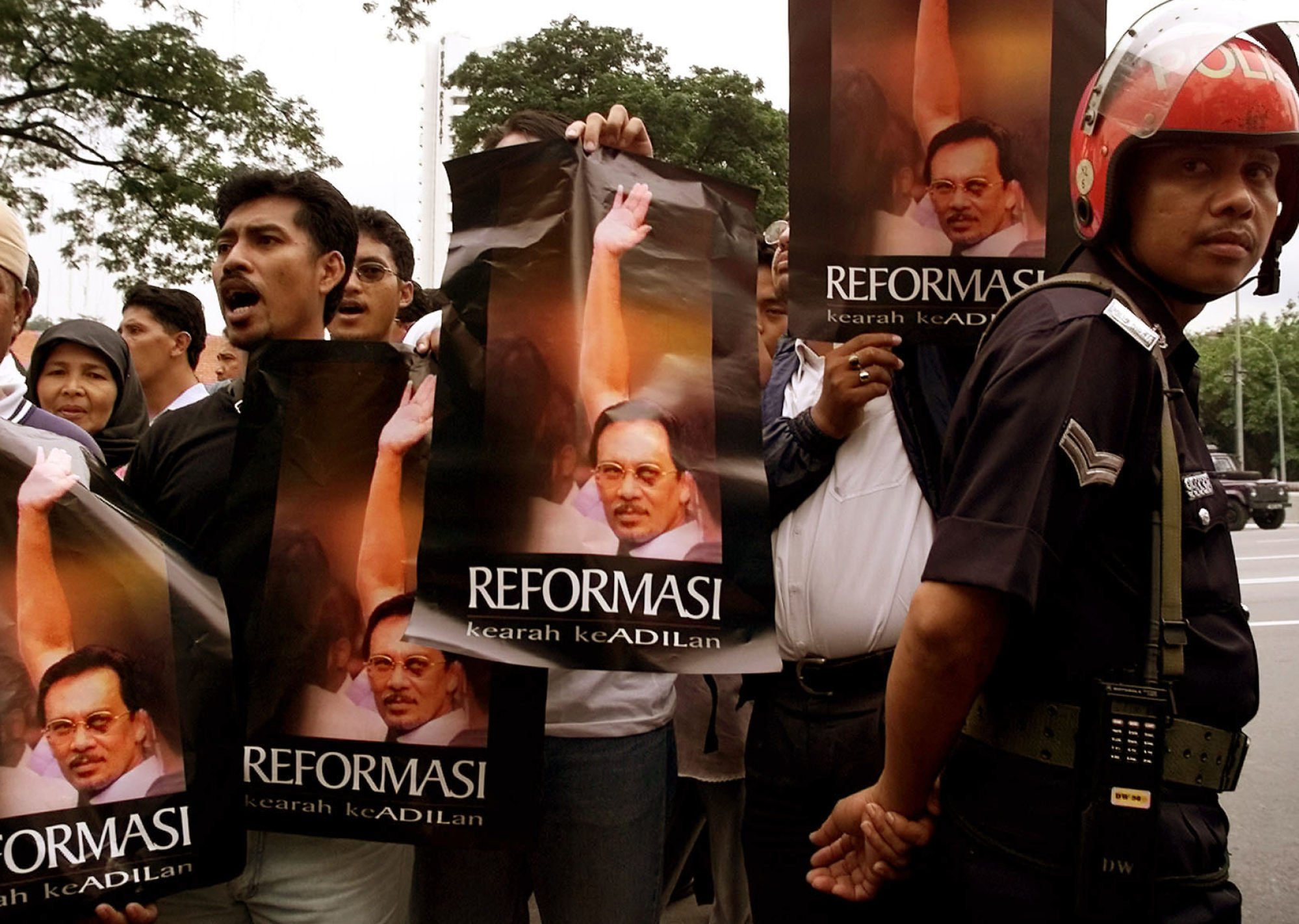
A self-inflicted wound?
For Anwar, who spent years honing his “Reformasi” brand in opposition to corruption and arbitrary power, the current storm is particularly damaging.
As opposition leader, he endured two stints in prison on sodomy charges widely condemned as politically motivated and his supporters faced arrests under draconian laws.
Yet since taking office in 2022, his government has drawn sharp criticism for its own heavy-handed crackdowns on dissent, especially on sensitive issues of race, religion and royalty, or the “3Rs”.
Even the recent acquittal of MP Syed Saddiq Syed Abdul Rahman on corruption charges, and Anwar’s claim of immunity from a sexual harassment lawsuit, have fuelled allegations of continued judicial interference.
“It is in the minds of the public,” Zaid said. “If the courts cannot be expected or relied upon to defend the people against infringements by the government, the public will feel anxious.”
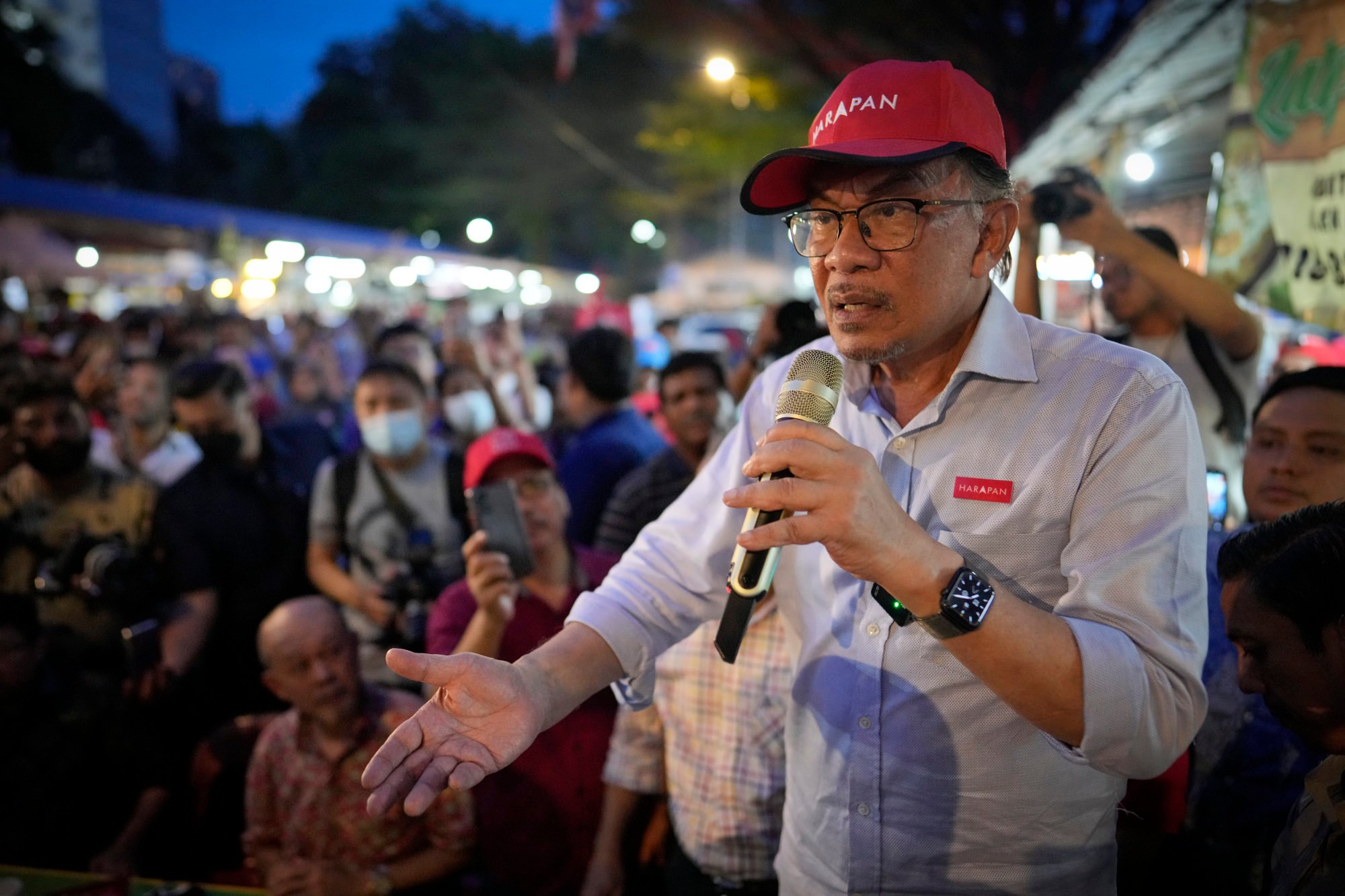
For many, the disillusion runs deep. Anwar’s Pakatan Harapan coalition may have won the most seats in the 2022 election, but it performed best among minority ethnic Chinese and ethnic Indian voters. The Malay majority, representing over 60 per cent of Malaysia’s 34 million people, overwhelmingly backed his rivals. Anwar has since been accused of pandering to this demographic.
“I understand the rural Malay vote is important, but where does that leave us who have joined rallies to support his Reformasi movement?” asked Nordin Ibrahim, a 45-year-old caterer.
“We joined all those protests because we believed in his struggle for justice, but now we are scared to even give our opinions.”
For Ambiga, the greatest shock is seeing Anwar, himself once a victim of the system, at the centre of the latest judicial crisis.
The Malaysian Bar has said it will hold an extraordinary general meeting this weekend, seeking to pass resolutions on judicial independence and to hold Anwar to account.
The ultimate goal would be to amend the constitution, removing the prime minister’s power to appoint judges and placing it in the hands of a truly independent body.
“It is a big ask, because giving up power is always difficult. But that will prove if they are a reformist government or not,” Ambiga said. “It will be difficult to persuade people to do that, but persuade we must.”